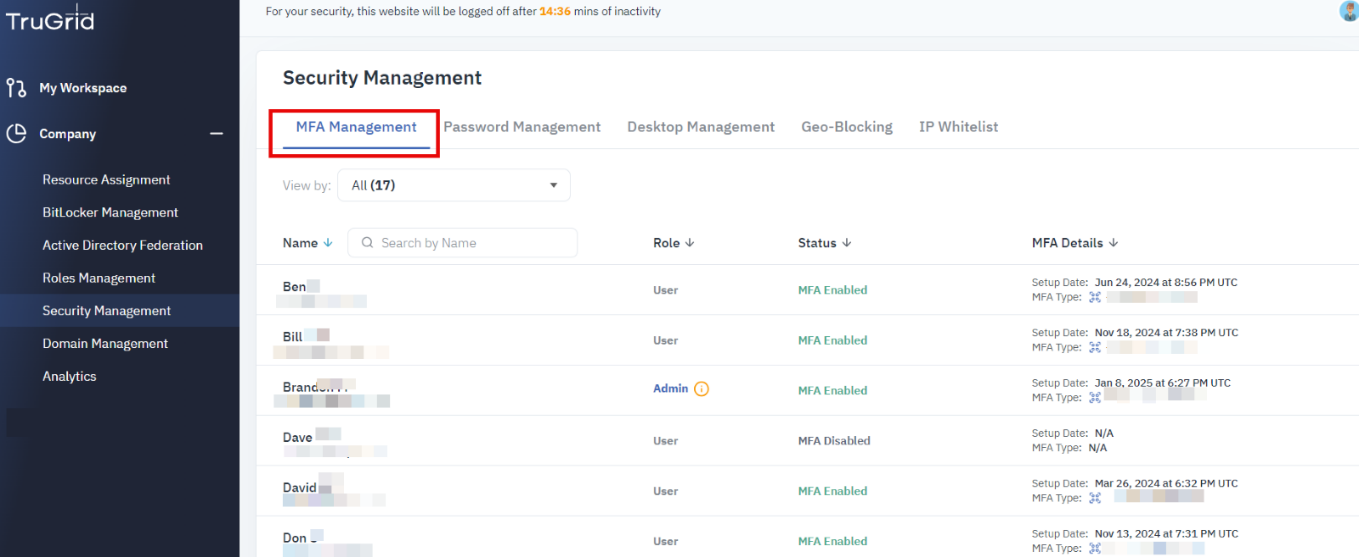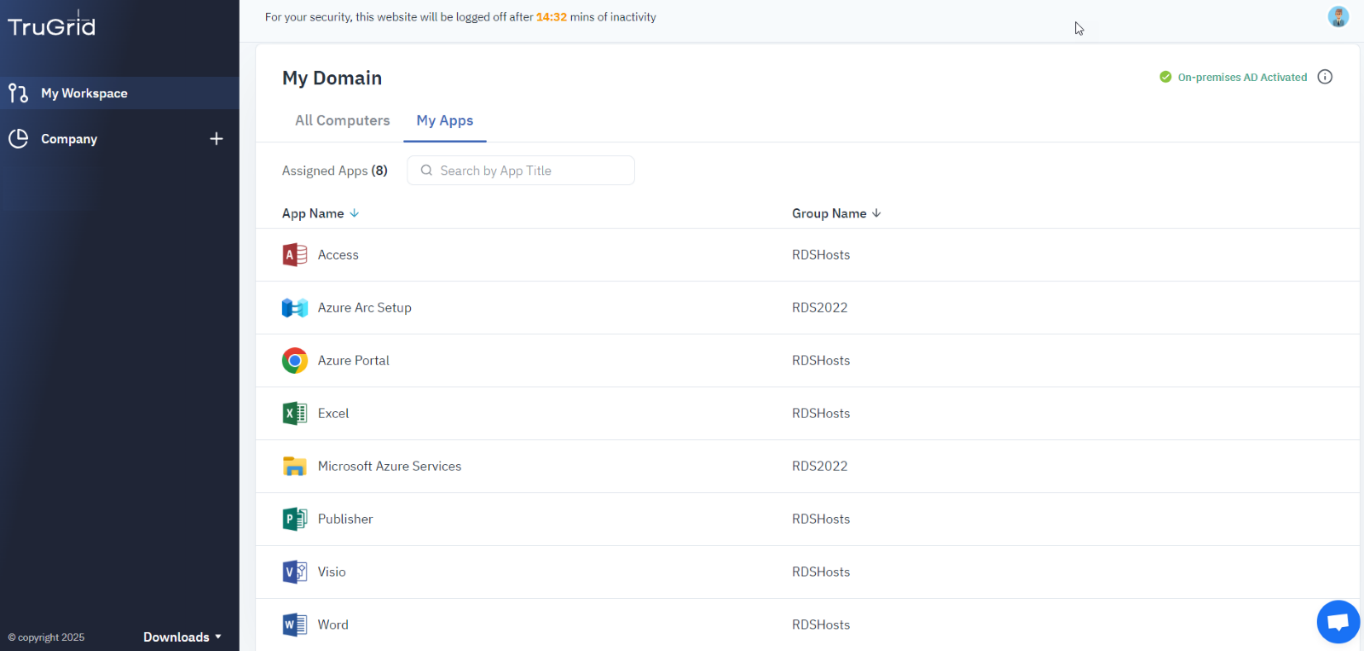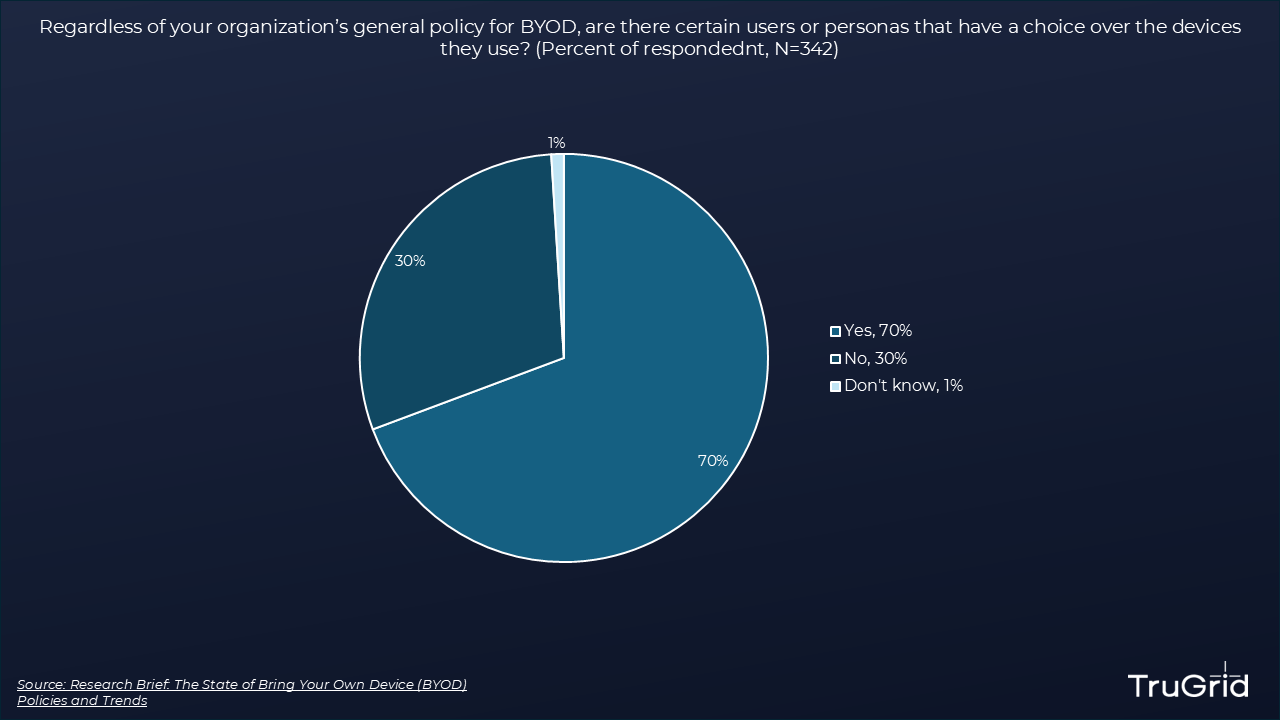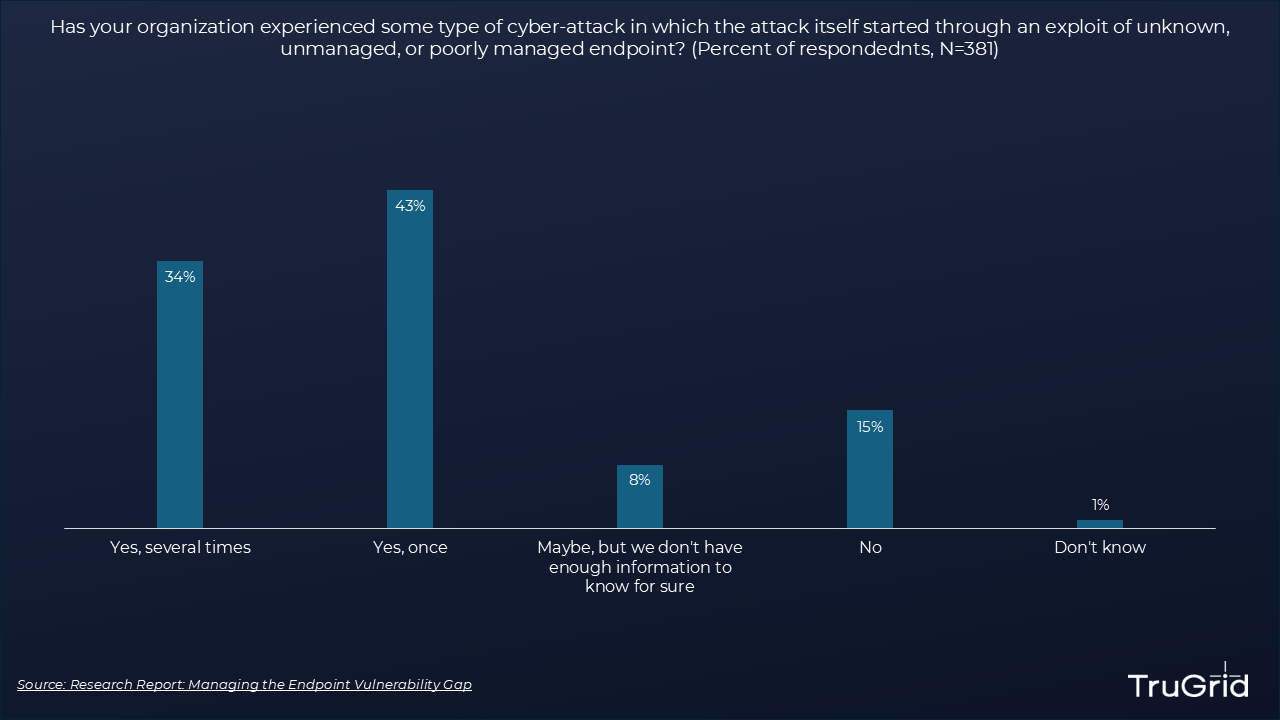While the first article outlined why VPNs are risky and cloud-based RDP is a superior alternative, this article will take a closer look at what makes TruGrid SecureRDP the best choice for modern businesses.
We’ll explore how it simplifies deployment, enhances security, and ensures compliance—all while eliminating the complexity of VPNs.
Simplified Deployment and Management: Less Complexity, More Control
Deploying and managing a VPN is often complex and time-consuming, particularly for organizations with large, distributed workforces.
VPNs require complicated configuration for end users, and are often difficult to use because of multiple steps required to establish connectivity, all of which can lead to lost productivity.
Cloud-Based RDP Simplicity & Flexibility
Cloud-based RDP solutions, like those offered by TruGrid, simplify the deployment process by offering centralized management through a single dashboard. This allows IT administrators to control user access, manage security policies, and monitor usage from one location.
TruGrid Management & Security Capabilities
Manage MFA: TruGrid enables the management of MFA for Active Directory users, with options to reset or disable MFA across domains. This is done via the Security Management section of the dashboard, offering a clear, user-friendly interface for managing MFA settings, which include disabling or resetting MFA for selected users.
Note: TruGrid does not recommend ever turning off MFA! For those using Microsoft Entra ID, TruGrid supports the use of Microsoft Entra MFA.

Geo-Blocking: Despite eliminating RDP exposure, Administrators can restrict countries where end users can SIGN IN from by enabling the Geo-Blocking feature of TruGrid and adding trusted countries.

TruGrid RemoteApp (Role-based App Access): TruGrid allows admins to enable RemoteApp and allow access to just required apps.
This prevents the need to allow end users to access entire remote desktop, thereby further reducing the attack surface even for authorized users. This is achieved via the Resource Assignment – App section.

TruGrid Supports BYOD
While security-conscious organizations will never allow BYOD devices to use VPN to connect to the corporate network (for fear of malware-traversal over unmanaged (BYOD) devices), cloud-based RDP solutions such as TruGrid are device-agnostic, allowing users to connect from any device without any possibility of malware traversal between any device and the corporate network.
“The State of Bring Your Own Device (BYOD) Policies and Trends” report from Enterprise Strategy Group (ESG) indicates that 70% of organizations allow certain personas, like IT and executives, to choose their devices, highlighting the growing reliance on BYOD.
The 73% of organizations that give IT personnel device choice and 54% for executives, reflect the need for flexible, yet secure access solutions. Cloud-based RDP provides a secure and simple solution for organizations with BYOD policies, ensuring secure remote access regardless of device type.
Organizations relying on VPN are prone to cyberattacks over BYOD devices since BYOD devices (not owned by the organization) can contain malware or other cyber threats that can spread from the BYOD devices to the corporate network.

Traditional VPNs expose networks to security risks, require complex configurations, and make compliance difficult. TruGrid SecureRDP eliminates these challenges with a fully managed, cloud-based RDP solution that requires no open firewall ports.
With built-in MFA, Geo-Blocking, and a Zero Trust framework, TruGrid simplifies remote access while ensuring enterprise-grade security.
Try a Business Plan for Free
Compliance and Governance: Stay Secure and Compliant
With increasing regulatory pressure, businesses must ensure compliance with standards such as HIPAA, GDPR, and PCI-DSS. VPNs, with their complex infrastructure, make auditing and monitoring difficult, leading to potential compliance issues. Cloud-based RDP offers enhanced compliance features compared to VPNs.
Cloud-Based RDP Compliance Features
Cloud-based RDP solutions simplify compliance by providing granular logging and built-in auditing tools. They also support cyber insurance requirements, which increasingly demand secure, no-firewall exposure solutions for remote access. This makes it easier for businesses to demonstrate compliance with standards like SOC 2, HIPAA, and PCI DSS.
The “Managing the Endpoint Vulnerability Gap” report by Enterprise Strategy Group (ESG) further reinforces the compliance benefits of cloud-based RDP. The report finds that 44% of organizations uncovered systems with open access and 37% identified compliance issues during endpoint monitoring.
Cloud-based RDP eliminates risks posed by vulnerable endpoints (BYOD and corporate) because it connects endpoints to corporate networks in a zero-trust fashion, whereby threats from remote endpoints cannot traverse into the corporate network.

Direct Comparison: VPN vs. Cloud-Based RDP
For many industries, especially healthcare, finance, and technology, where security and compliance are paramount, cloud-based RDP offers a superior solution when compared with RDP over VPN.
Cloud-based RDP ensures secure, scalable, and high-performance access to critical applications without exposing the entire network.
|
Feature |
VPN |
Cloud-Based RDP |
|
Security |
Requires open inbound firewall ports |
No open inbound firewall ports, Zero Trust |
|
Performance |
Higher latency, network congestion |
Low-latency, load distribution |
|
Cost |
High upfront and ongoing costs |
Pay-as-you-go, scalable |
|
Management |
Complex setup and management |
Simplified and centralized |
|
Compliance |
Exposed inbound ports create compliance headache |
Zero exposure, integrated MFA, support for Geo Blocking and Conditional Access, help meet compliance |
Table 1: VPN vs. Cloud-Based RDP Feature Comparison
Conclusion
As businesses continue to adapt to a distributed workforce, the security, performance, and cost limitations of VPNs are becoming more evident.
Cloud-based RDP solutions like TruGrid SecureRDP provide a secure, scalable, and cost-efficient alternative, making them the superior choice for modern remote access needs.
Growing cyber threats underscore the urgency for businesses to adopt zero-trust solutions like cloud-based RDP.
Don’t wait until your next cybersecurity audit or breach—schedule personalized demo with TruGrid and take the first step towards a secure remote access future.
Sponsored and written by TruGrid.
